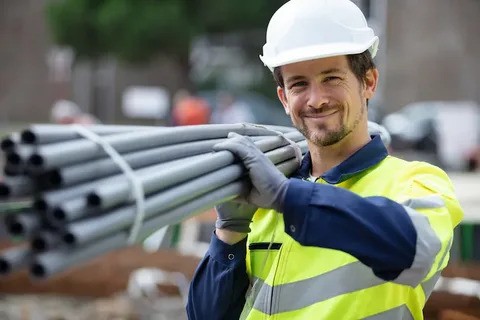Construction Jobs in Italy
Italy is renowned worldwide for its rich cultural heritage, iconic architecture, and a long-standing tradition of craftsmanship. From the ancient Roman structures and medieval castles to modern skyscrapers and sustainable urban developments, the construction industry in Italy is as diverse as the country’s history. In today’s dynamic economic landscape, construction jobs in Italy offer a wide range of opportunities for both skilled tradespeople and professionals. This article explores the various facets of the construction industry in Italy, including the types of jobs available, the skills and qualifications required, current trends, challenges, and the future outlook for this vital sector.
A Glimpse into Italy’s Construction Landscape
Italy’s construction sector is deeply rooted in its history. The country’s architecture tells stories of different eras—from the grandeur of Roman engineering to the intricate artistry of the Renaissance. This historical legacy has laid the foundation for a modern construction industry that blends traditional techniques with innovative technology.
Historical Heritage Meets Modern Innovation
Italian construction is unique in that it respects its past while embracing modernity. Restoration and preservation of historical monuments are as important as the construction of new buildings and infrastructure projects. This dual focus creates diverse job opportunities:
- Restoration Specialists: Experts in preserving and restoring historical buildings.
- Modern Builders: Professionals engaged in constructing contemporary residential, commercial, and industrial buildings.
This blend of old and new means that workers in Italy’s construction industry are not only building for the future but also safeguarding the past.
Economic Impact and Regional Variations
The construction industry is a significant pillar of the Italian economy, contributing to job creation, urban development, and economic growth. However, opportunities can vary greatly between regions:
- Northern Italy: Known for its advanced manufacturing and industrial zones, Northern Italy boasts a high demand for modern construction projects, including commercial buildings and infrastructure.
- Central Italy: With its concentration of historical cities and cultural landmarks, the focus here is often on restoration, preservation, and tourism-related developments.
- Southern Italy: While facing economic challenges, Southern Italy is experiencing growth in residential and small-scale commercial projects, along with government initiatives aimed at revitalizing local communities.
Types of Construction Jobs in Italy
The construction industry offers a vast spectrum of roles suited to different skills and experience levels. Whether you are a tradesperson with hands-on expertise or a professional with project management skills, Italy’s construction sector has something to offer.
Skilled Trades and Manual Labor
Skilled trades form the backbone of the construction workforce in Italy. These roles are essential for the physical execution of construction projects.
- Carpenters and Masons: Involved in building frameworks, walls, and decorative elements, these professionals are in high demand for both new construction and restoration projects.
- Electricians and Plumbers: Critical to ensuring that buildings meet modern safety and operational standards, these tradespeople install and maintain electrical systems, water supply, and heating systems.
- Painters and Decorators: Italy’s commitment to aesthetic excellence means that artisans who can deliver high-quality finishes and creative designs are highly valued.
- Heavy Equipment Operators: Operators skilled in using cranes, excavators, and other machinery play a crucial role in large-scale construction projects and infrastructure development.
Professional and Technical Roles
Beyond manual labor, the construction industry in Italy requires a wide range of professionals who manage, design, and oversee projects.
- Architects and Engineers: These professionals are at the heart of the design process. Architects blend creativity with technical knowledge to design structures that are both beautiful and functional, while engineers ensure that these designs are structurally sound.
- Project Managers: Responsible for coordinating various aspects of a construction project, project managers oversee timelines, budgets, and team performance to ensure projects are completed on schedule.
- Surveyors and Urban Planners: Surveyors provide critical data on land, topography, and environmental factors, while urban planners design the layouts of cities and regions, balancing growth with sustainability.
- Health and Safety Officers: Ensuring that construction sites comply with safety regulations is paramount. These professionals develop protocols, conduct inspections, and implement safety training programs to minimize risks.
Specialized Roles in Restoration and Sustainability
Italy’s commitment to preserving its cultural heritage has created a niche market for restoration experts.
- Restoration Specialists: Experts in historical building techniques work to repair and maintain ancient structures while preserving their original character.
- Sustainable Construction Experts: With the global push towards green building, professionals skilled in sustainable design and energy-efficient technologies are increasingly sought after. These roles often involve integrating modern eco-friendly practices with traditional construction methods.
Skills, Qualifications, and Training
Educational Pathways
For many roles in the construction industry, formal education plays a key role. Italy offers various educational and training programs designed to equip workers with the necessary skills:
- Vocational Schools and Technical Institutes: These institutions provide practical training in trades such as carpentry, masonry, electrical work, and plumbing.
- Universities and Engineering Schools: Higher education institutions offer degrees in architecture, civil engineering, and construction management, preparing graduates for professional roles.
- Apprenticeship Programs: Many construction firms in Italy offer apprenticeship programs that combine on-the-job training with classroom instruction. These programs are vital for passing on traditional techniques and modern best practices.
Professional Certifications and Continuous Learning
In addition to formal education, obtaining professional certifications can enhance a candidate’s employability:
- Safety Certifications: Courses in health and safety are essential for roles that involve on-site work.
- Technical Certifications: For roles involving specialized equipment or sustainable building practices, certifications from recognized industry bodies can be a significant asset.
- Language Skills: For expatriates and foreign workers, proficiency in Italian is often necessary. However, in multinational projects or companies, English is increasingly used as a working language.
The Role of Unions and Professional Associations
In Italy, labor unions and professional associations play a significant role in the construction industry:
- Unions: Many construction workers are members of unions that negotiate better wages, improved working conditions, and training opportunities.
- Professional Associations: Organizations such as the Italian Association of Construction Engineers offer networking, professional development, and advocacy for industry standards.
Current Trends and Innovations
The construction industry in Italy, while steeped in tradition, is rapidly evolving thanks to technological advancements and a growing emphasis on sustainability.
Digital Transformation in Construction
Modern construction techniques are increasingly leveraging digital tools:
- Building Information Modeling (BIM): BIM technology allows for the creation of digital representations of buildings, improving project planning, reducing waste, and enhancing collaboration among teams.
- Drones and Robotics: The use of drones for surveying and monitoring construction sites is becoming more common, as are robots that assist with tasks like bricklaying and concrete pouring.
- Software Solutions: Advanced project management and design software help streamline operations, from scheduling and budgeting to quality control and risk management.
Sustainability and Green Construction
Environmental concerns are driving a shift towards more sustainable construction practices:
- Eco-Friendly Materials: The demand for materials that reduce carbon footprints—such as recycled steel, sustainable timber, and low-emission concrete—is on the rise.
- Energy-Efficient Designs: New buildings in Italy are increasingly designed with energy efficiency in mind, incorporating renewable energy sources like solar panels and geothermal heating.
- Regulatory Support: Government initiatives and European Union funding are often available to support green construction projects, providing incentives for companies to adopt sustainable practices.
Challenges Facing the Construction Industry
While there are many opportunities, the construction industry in Italy also faces several challenges that prospective job seekers should be aware of.
Bureaucracy and Regulatory Hurdles
Navigating Italy’s regulatory environment can be complex:
- Permitting and Zoning: Construction projects often require numerous permits and must adhere to strict zoning laws, which can slow down project timelines.
- Bureaucratic Delays: Administrative inefficiencies and lengthy approval processes can pose challenges, particularly for large-scale or innovative projects.
Economic Fluctuations and Market Uncertainty
Like many industries, construction in Italy is influenced by broader economic conditions:
- Market Volatility: Economic downturns, fluctuations in real estate demand, and changes in government policy can impact job stability and project funding.
- Regional Disparities: Economic opportunities can vary widely between regions. While Northern Italy may offer more robust opportunities, Southern Italy can present challenges in terms of investment and job availability.
Competition for Skilled Workers
The demand for skilled labor in Italy’s construction industry is high, and competition can be intense:
- Skill Shortages: Despite a strong tradition of craftsmanship, there is often a shortage of workers with specialized skills, particularly in digital construction techniques and sustainable practices.
- Attracting Young Talent: The industry faces the challenge of attracting younger generations, who may be drawn to more technology-driven fields. This makes it critical for companies to invest in training and create appealing career pathways.
Opportunities for Career Growth
Despite these challenges, the construction industry in Italy offers significant opportunities for those willing to invest in their professional development.
Advancing Through Experience
As workers gain experience, they can progress into higher-level roles:
- Supervisory and Management Positions: Skilled tradespeople who demonstrate leadership can move into supervisory roles or even manage entire projects.
- Specialized Expertise: Professionals who focus on niche areas, such as restoration or sustainable construction, can command premium salaries and enjoy robust career prospects.
- Entrepreneurial Ventures: Experienced professionals may choose to start their own construction companies or consultancy firms, leveraging their expertise to capture niche markets.
Embracing Lifelong Learning
Continuous education and skill development are key to staying competitive:
- Ongoing Training: Many companies and unions offer regular training sessions to help workers stay updated with the latest technologies and regulatory changes.
- Advanced Degrees and Certifications: Pursuing further education, such as a master’s degree in construction management or specialized certifications, can open doors to senior roles and increased earnings.
The Future Outlook for Construction Jobs in Italy
Looking ahead, the future of construction in Italy appears promising, albeit not without challenges. The ongoing digital transformation, coupled with a strong push towards sustainability, is reshaping the industry. Companies that adapt to these changes are likely to see increased investment and growth, creating new opportunities for workers at every level.
Government initiatives aimed at modernizing infrastructure and preserving cultural heritage will continue to drive demand for both traditional skills and modern expertise. As Italy continues to balance its rich historical legacy with the demands of a modern economy, construction jobs will remain a vital component of its development.
Construction Jobs in Italy
Construction jobs in Italy offer a dynamic blend of tradition and innovation, providing opportunities to work on projects that range from the restoration of ancient monuments to the construction of cutting-edge modern buildings. Whether you are a skilled tradesperson, an engineer, an architect, or a project manager, Italy’s construction industry has something to offer.
Success in this field requires a commitment to lifelong learning, a willingness to adapt to new technologies, and an understanding of the unique challenges posed by Italy’s regulatory and economic landscape. For those passionate about building not just structures, but also a legacy, a career in construction in Italy can be both fulfilling and transformative.
As Italy continues to evolve and modernize while cherishing its historical roots, construction professionals are at the forefront of creating a sustainable future. With competitive salaries, robust training programs, and opportunities for advancement, the construction sector is poised for growth—offering a promising career path for those ready to contribute to Italy’s ongoing story of innovation, craftsmanship, and resilience.
Embrace the challenge, invest in your skills, and become part of a sector that builds not only structures but also the foundation for a brighter future in Italy. Whether you’re just starting your career or looking to take the next step, the opportunities in Italy’s construction industry await you—ready to help you build a legacy that stands the test of time.



